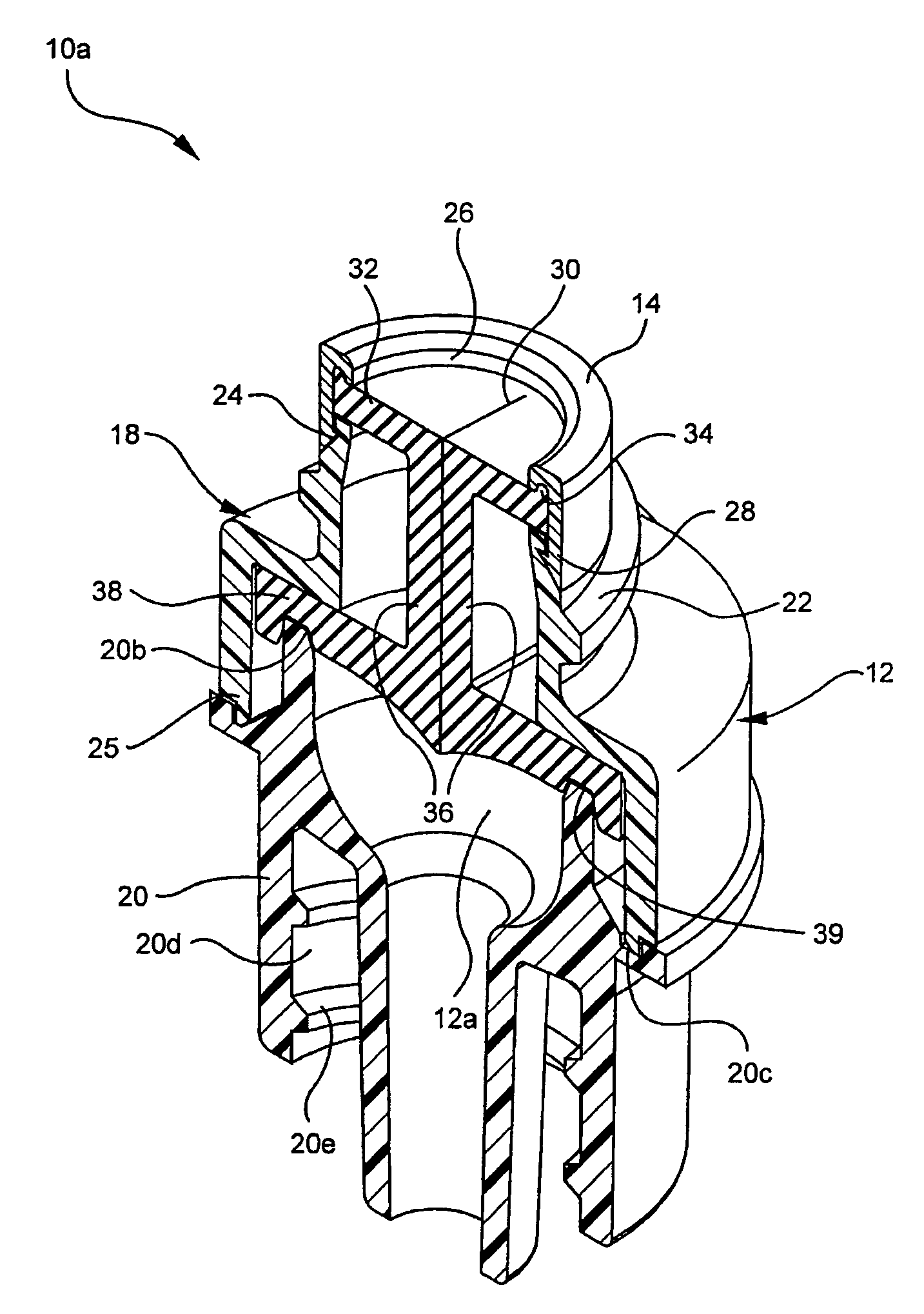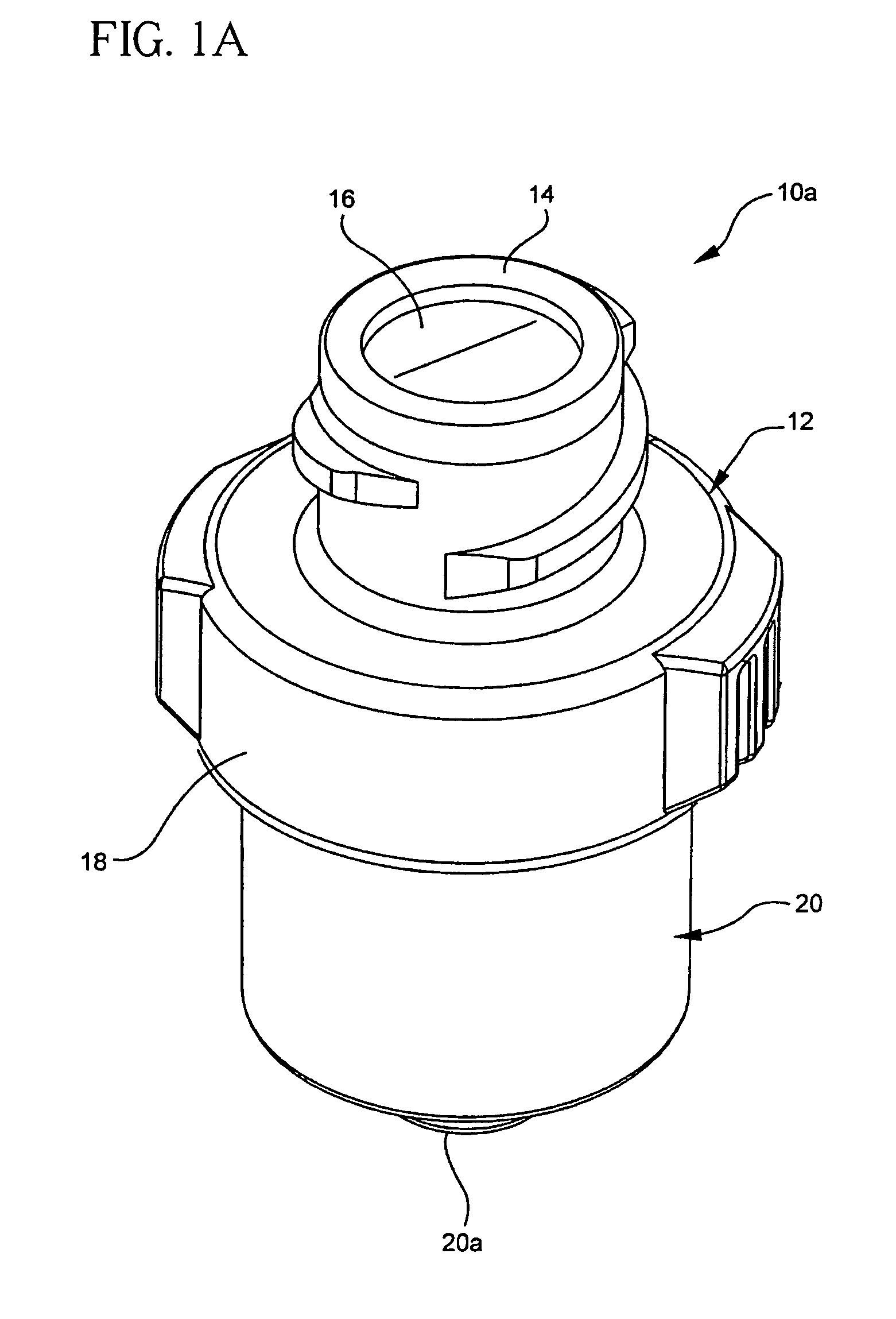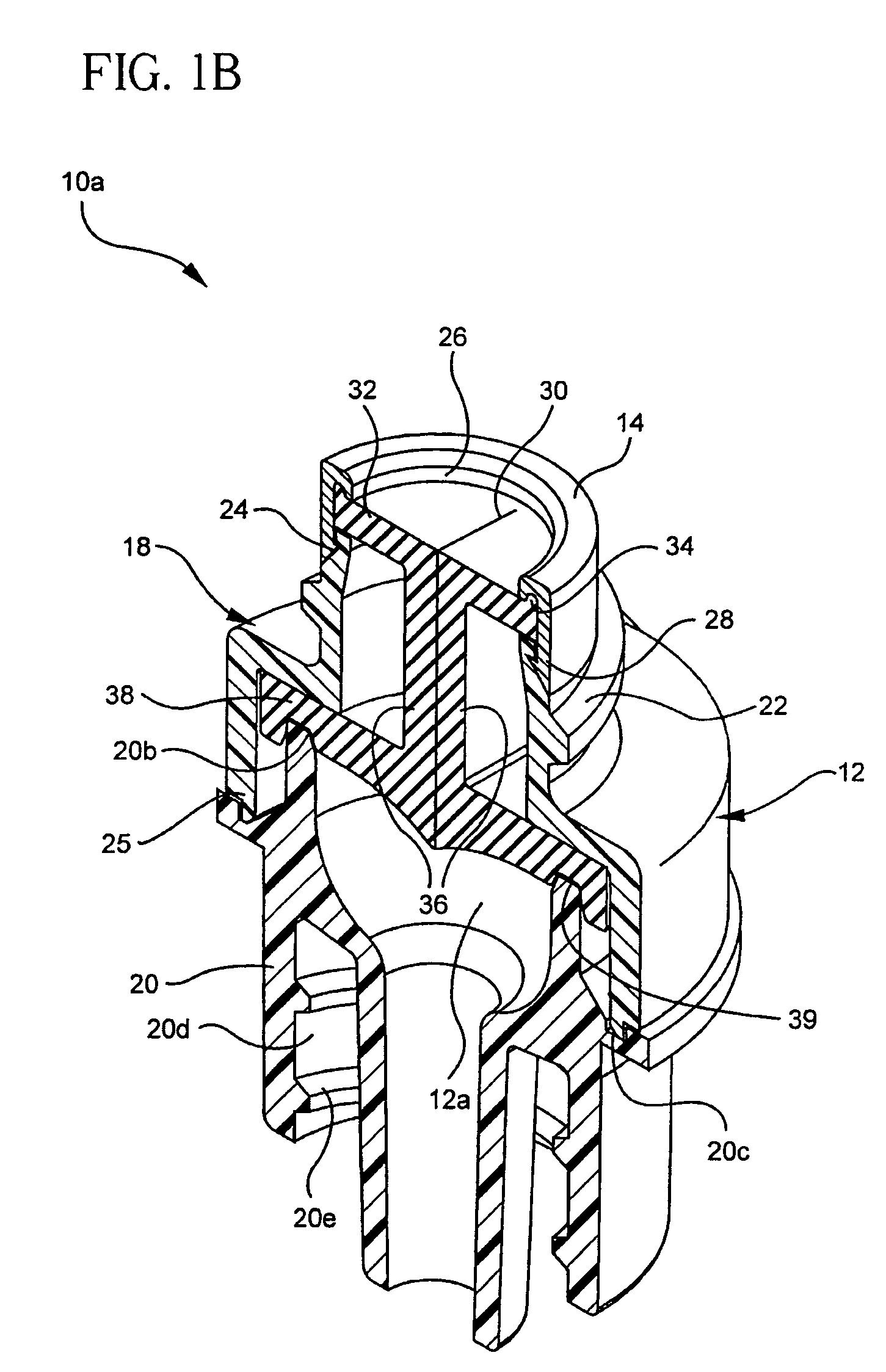Medical access device
a technology for access devices and medical devices, applied in the field of access connectors, can solve problems such as fluid spatter, and achieve the effect of maximizing the performance of the connector and minimizing axial and rotational movemen
- Summary
- Abstract
- Description
- Claims
- Application Information
AI Technical Summary
Benefits of technology
Problems solved by technology
Method used
Image
Examples
Embodiment Construction
[0019]FIGS. 1A-1C show components of a representative embodiment of access connector 10a. FIG. 1A shows access connector 10a with housing 12, crimp ring 14 and septum 16. Housing 12 also includes body 18 and base 20 with fluid line port 20a.
[0020]Housing 12 is typically made of thermoplastic material such as polycarbonate, polyester and blends of the two. Crimp ring 14 may be fabricated from the same material or same class of materials. Alternatively, crimp ring 14 may be fabricated from metal such as stainless steel or aluminum. Septum 16 is typically made from silicone or polyisoprene. Housing 12, crimp ring 14 and septum 16 may be fabricated from other materials as long as septum 16 is flexible, while housing 12 and crimp ring 14 are relatively rigid.
[0021]Crimp ring 14 surrounds the top of septum 16 and is attached to the top end of body 18. Base 20 is attached to the bottom end of body 18, and port 20a extends from the bottom end of base 20.
[0022]In use, connector 10a is conne...
PUM
| Property | Measurement | Unit |
|---|---|---|
| thermoplastic | aaaaa | aaaaa |
| chemical bonding | aaaaa | aaaaa |
| adhesive | aaaaa | aaaaa |
Abstract
Description
Claims
Application Information
 Login to View More
Login to View More - R&D
- Intellectual Property
- Life Sciences
- Materials
- Tech Scout
- Unparalleled Data Quality
- Higher Quality Content
- 60% Fewer Hallucinations
Browse by: Latest US Patents, China's latest patents, Technical Efficacy Thesaurus, Application Domain, Technology Topic, Popular Technical Reports.
© 2025 PatSnap. All rights reserved.Legal|Privacy policy|Modern Slavery Act Transparency Statement|Sitemap|About US| Contact US: help@patsnap.com



